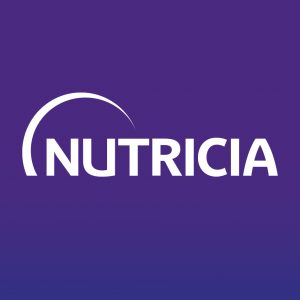“What should I say to the school staff?
Let your child’s school and teacher know about his or her PKU as soon as possible. Explain the importance for teachers and other staff to understand why your child needs a special diet, and why careful supervision is needed. Ask if you can keep low protein snacks at school if needed. It may be useful to ask teachers to pack any leftover food in your child’s lunchbox so you can determine how much was eaten. Many children in the first years at school have supervised lunch before going out to play, so this means managing what has and has not been eaten much easier. Find out what the policy for your school is.
Should my child tell friends about their PKU?
As your child gets older it is important that your child’s closest friends know about PKU so that they understand or can help offer support in social situations. If your child doesn’t want to tell friends, you can discuss with him/her the idea of inviting friends over so that you can help explain PKU. Some parents also provide a presentation to their child’s class, offering classmates the chance to ask questions and see the ‘tools’ for living with PKU, such as their PKU supplement and blood sampling material. Make sure your child is comfortable with this and keep the information simple.
Will my child need to take their PKU supplement to school?
Many children will take their PKU supplement to school in order to spread intake throughout the day. This may not suit all children and you should talk with your dietitian to work out what is best for your child.
Useful tips
- Consider using ready-made PKU supplements, such as PKU Lophlex LQ Juicy or PKU Anamix Junior
- Take pre-mixed PKU supplements in a fun sports bottle so they don’t feel ‘different’
- Find out if they can go to the school nurse’s office to drink their PKU supplement, if they would prefer
- Pack the PKU supplement with their lunch so they can drink it during their lunch break
- Use an icepack if your child prefers to drink their supplement cold or if it is pre-mixed from powder.
- If they have after school activities, such as sports, pack extra PKU supplement/s if needed
What should I do about school lunch?
You may find that it’s easier to pack lunches. Allowing your child to choose lunch options will make him or her happier with the choices and preparing a list of options in advance will make it easier for both of you.
Packed lunch Ideas
- Sandwiches made with low protein bread e.g. Loprofin Part Baked Sliced loaf or Loprofin Baking Mix. These can be toasted also.
- Low protein bread rolls (e.g. Loprofin Park Baked Bread Rolls) with filling or low protein savoury scrolls (e.g. made with Loprofin Baking Mix)
- Cold vegetable patties
- Rice paper rolls or Sushi rolls made with low protein rice (e.g. Loprofin Rice)
- Low protein pasta or rice in a thermos to keep it warm
- Salads with low protein pasta and rice
- Variety of fruits and raw vegetables
- Low protein snacks such as those recommended by the PKU Handbook
Check out our recipes section for more easy meal ideas!
Help to keep your child’s diet on track
Encourage your child’s teacher to contact you with questions about your child’s diet. Ensure there is a good understanding of your child’s special diet to avoid any mistakes in interpreting lunch orders. Some parents drop off some low protein cooked foods or breads to the canteen, so their child can have a ‘special’ lunch like others. Make sure the food is not what they have every other day of the week if you do this, nor does it need to be ‘unhealthy’.
Can my child do after school activities?
Your child should be able to participate in after school activities just like every other child. You just need to plan ahead. Speak to your child’s after school activity leader or coach about PKU if the activity involves food not brought from home. Children with PKU don’t have additional nutritional needs if they are eating well and taking their PKU supplement and should not need extra snacks more than other children. Ensure that your child has food and drinks that are appropriate for the length and physical intensity of the activity. In many instances this may only be a drink of water.
Reference source: PKU Handbook [2005]. Australasian Society for Inborn Errors of Metabolism (ASIEM) (Australia and New Zealand). Chapter 9: Preparing for childcare, preschool and school.
Please Note: The dietary management for PKU varies for each person so all information presented here is for guidance only. Your own dietitian and/or doctor will advise you on all aspects relating to management of PKU for you and your family.









